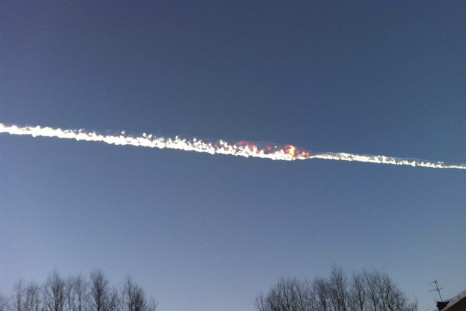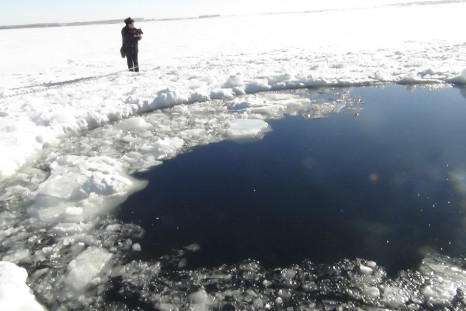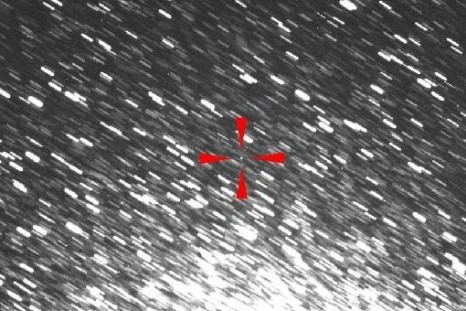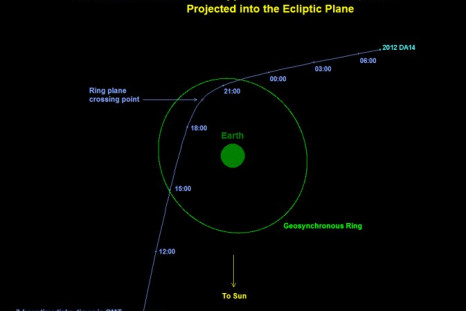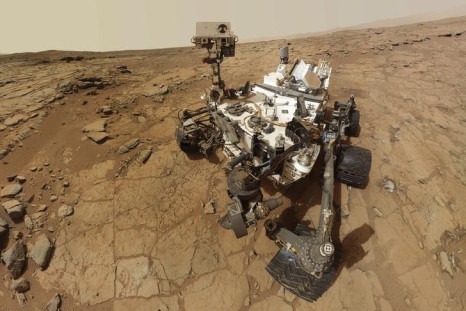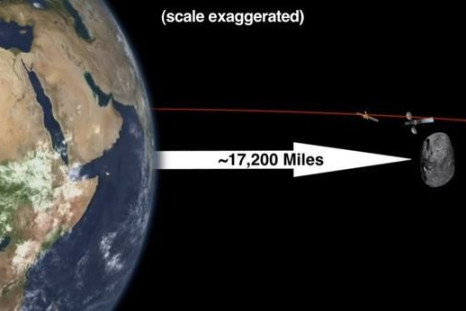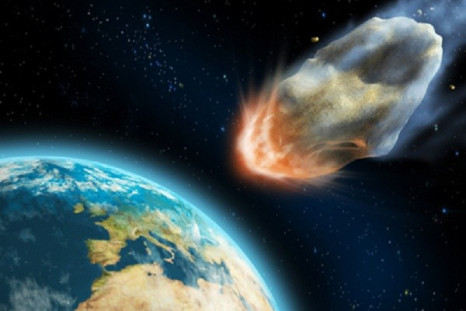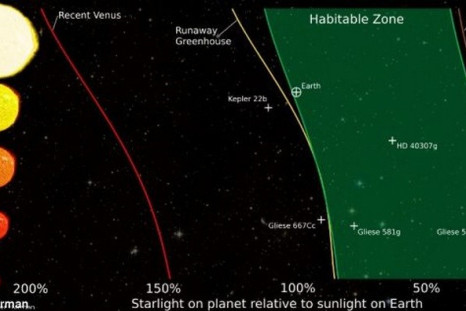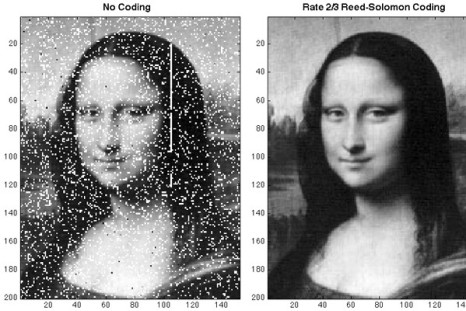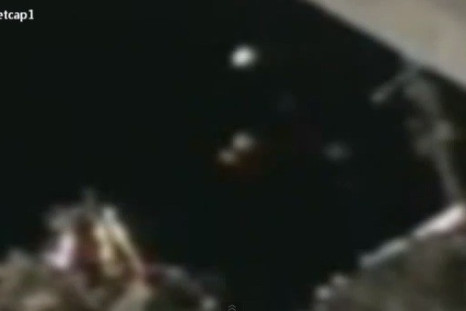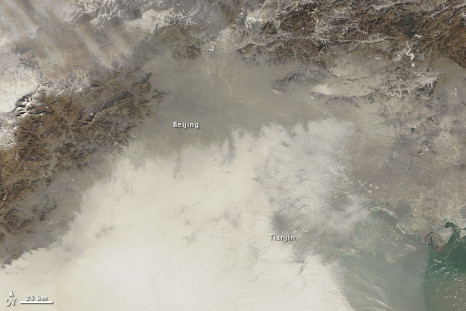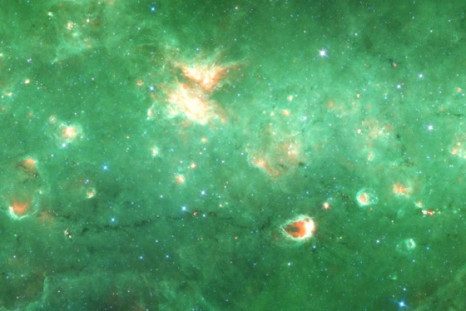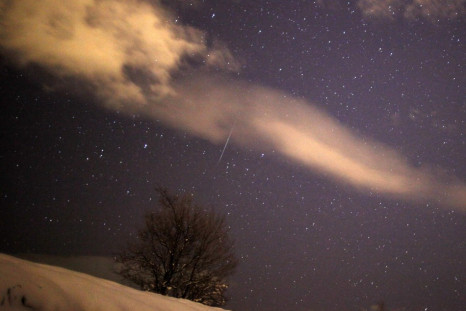Home
> NASA
NASA
Russia Meteorite Blast Equals 500-Kiloton Explosion - NASA
Nasa sees no connection between Russian meteorite and Asteroid that raced right past Earth.
Vasudevan Sridharan Feb 16, 2013
Russia Calls for International Anti-Asteroid System after Meteor Terror [VIDEO]
Deputy PM Dmitry Rogozin urges nations to club together in absence of space debris interception technologies.
Umberto Bacchi Feb 15, 2013
After Russia Meteor, Here Comes 2012 DA14 Asteroid [FIRST PICTURES]
Earth gets another close encounter with flying space rock when asteroid 2012 da14 whizzes past our planet later - hours after a meteor burned up over the Urals in Russia.
Dominic Gover Feb 15, 2013
Close Encounters with an Asteroid: Near Earth Object Approach Will be Closest Ever
An asteroid - 2012 DA14 - will come within 30,000km of Earth on the evening of 15 February. This is the closest that a Near Earth Object has ever been
Agnisheik Chatterji Feb 15, 2013
Nasa's Curiosity Rover Drills into Surface of Mars
Exploratory craft drills into Martian surface to and collect rock samples for Nasa scientists.
Fiona Keating Feb 10, 2013
Earth Faces Close Encounter with 50-Metre Asteroid
Object is largest to pass so close to our planet in 15 years, say Nasa scientists.
Timur Moon Feb 09, 2013
Massive Asteriod to Pass Nearer than GPS Maps Satellites
Impact of 2012 DA14 would be like 2.5 megatons of TNT, but NASA says: "relax"
Dominic Gover Feb 06, 2013
Alien Life Graph Puts Earth on Edge of Space's Habitable Zone
Penn State Department of Geosciences scientists redraw band crucial for life to thrive.
Dominic Gover Jan 31, 2013
Nasa Beams Mona Lisa to Moon [VIDEO]
Nasa transmits image of Mona Lisa to the Lunar Reconnaissance Orbiter.
Hannah Osborne Jan 18, 2013
2013 Kicks off with Multiple UFO Sightings Across the World [VIDEOS]
2013 may be year mankind finally establishes contact with intelligent life from outside Earth.
Staff Reporter Jan 17, 2013
UFOs Filmed near Nasa's International Space Station [VIDEOS]
Flying saucer 'triangle' captured on film few hundred miles above Earth by Nasa cameras and uploaded on YouTube.
Staff Reporter Jan 16, 2013
Nasa Space Camera Shows China Choking under Smog Blanket
Nasa satellite photograph shows scale of air pollution over country at never-before-seen levels.
Ewan Palmer Jan 16, 2013
Milky Way: First ‘Bone’ of Galactic Skeleton Identified as 'Nessie'
Astronomers find first structure that forms part of the Milky Way's cosmic 'skeleton'.
Hannah Osborne Jan 09, 2013
Mankind on Road to Global Collapse, Warn Royal Society Scientists
Over-population, climate change, pollution, species extinction and over-consumption spell end of civilisation.
Hannah Osborne Jan 09, 2013
Quadrantid Meteor Showers Brighten up January Night Sky
Quadrantids have maximum rate of up to 100 meteors per hour and expected to peak just before dawn on Friday.
Fiona Keating Jan 02, 2013
Mayan Doomsday: Last Chance to Survive Apocalypse - in Stalin's Nuclear Bunker
Bunker 42 deep underground in Moscow to host end-of-the-world party for £600 a head.
Hannah Osborne Dec 20, 2012
Mayan Doomsday 2012: Watch the 'End of the World' Live Online
Robotic telescope set up to offer live coverage of Mayan apocalypse.
Simi John Dec 20, 2012
Mayan 2012 Prophecy: How To Tell Your Children the World is Going to End
The US government has issued guidelines on how to tell children about the forthcoming apocalypse.
Hannah Osborne Dec 19, 2012
Mayan Apocalypse Explained: Why the Long Count Calendar Does Not Signal the End of the World
Doomsday theorists believe the end of the Baktun cycle on 21 December signals the apocalypse, but this is not the case, experts say.
Hannah Osborne Dec 18, 2012
Mayan Apocalypse: Do Cyclones and Solar Flares Herald Countdown to End of World
Weather reports across the globe do not give bright outlook for Doomsday on 21 December.
Hannah Osborne Dec 18, 2012
Mayan Doomsday Calendar 2012: Chinese Man Affected by Rumours Stabs 23 Children
Doomsday rumours make Chinese man, 36, go on stabbing spree.
Simi John Dec 18, 2012
Mayan Doomsday Calendar 2012: Experts Debunk End of the World Talk
Mayan calendar is believed to predict the end of the world on 21 December, 2012. So how real is Doomsday?
Simi John Dec 17, 2012
Hacker Gary McKinnon Will Face No Criminal Action in UK
Scottish computer hacker Gary McKinnon won't be put on trial in the UK, following the government's decision not to extradite him to the US.
David Gilbert Dec 14, 2012
Geminid Meteor Shower 2012: Stunning Pictures of Shooting Stars around the World
Skywatchers around the world witnessed the annual Geminid meteor shower which was at peak with a bounty of brilliant shooting stars.
Staff Reporter Dec 14, 2012
Geminid Meteor Shower 2012: Where to Watch Showers Live and Online in Peak Time
The Geminid meteor shower, the last major such event of 2012, could well become one of the most brilliant of the year
Staff Reporter Dec 13, 2012
End of the World is Nigh: What People Will be Doing on Last Day on Earth
Survey shows friends and family are biggest comfort during Apocalypse countdown - but some plans are more surprising.
Hannah Osborne Dec 11, 2012
What is X-37B? US Air Force Mystery Space Craft Ready for 3rd Launch [SLIDESHOW]
Theories about robot shuttle range from atomic bomb to spy-satellite - and Russia and China are reportedly fretting.
Umberto Bacchi Dec 11, 2012
Mali Prime Minister Cheick Modibo Diarra Resigns After Arrest
Soldiers arrest Diarra from his home as he prepares to leave the country for France.
Vasudevan Sridharan Dec 11, 2012
NASA Releases Stunning Night Images of Earth as Seen from Space [PHOTOS]
Scroll down to view the beautiful images of earth, as seen from space, taken by NPP satellite during the night.
Sanskrity Sinha Dec 06, 2012
Typhoon Bopha Lashes Philippines [PHOTOS]
In the southern Philippines 50,000 people were evacuated due to heavy rains and winds by typhoon Bopha
Umberto Bacchi Dec 04, 2012
Pages
- PREV
- 48
- 49
- 50
- 51
- 52
- 53
- 54
- 55
- 56
- NEXT


